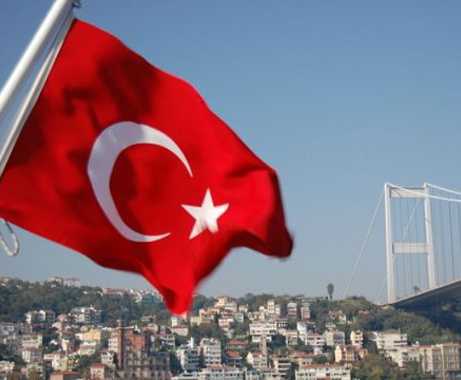YAVUZ BAYDAR
When we speak about the “orphanage for boys,” we are not talking about an abandoned institution, harassed by destructive nationalism and legal strife, but also an historic structure. The Greek orphanage, situated on the Hristo Hill of Büyükada — or Pringipo as it was called in Greek — the major member of the Princes’ Islands, is arguably the second largest and oldest wooden structure in the world and unique in Europe.
It was in August 2009 when Prime Minister Recep Tayyip Erdoğan and Deputy Prime Minister Bülent Arınç visited the long-abandoned building. It was the first such high-level visit in decades. Seeing the miserable state of the building, which is almost ready to collapse at any moment, Arınç was so emotional at the sight that tears came to his eyes. He said something like, “None of us [either in Turkey or in Greece] has the right to cause such harm to one another, it is a shame for us this was done [to this building].”
So, when the title deed to the orphanage’s property was handed back to the Greek Orthodox Patriarchate on Monday after a five-year dispute, not only was justice done, but also hope grew that the time has finally come to acknowledge the wrongdoings of history, which has unfairly treated the Greek minority in İstanbul and the Turkish minority in the Western Thrace region of Greece.
The development, described by a lawyer of the Greek Orthodox Patriarchate in Fener not as “historic,” but “very important” happened thanks to rulings by the European Court of Human Rights (ECtHR) in July 2008 and June 2010.
The 110-year-old, five-storey building was constructed by the French as a hotel, but it was handed over later by the sultan to the patriarchate, which turned it into an orphanage that functioned until 1963, when it was evacuated by official order (which took place while the violence between ethnic communities escalated on Cyprus) pointing out that it was under threat of collapse. It has remained an empty building since then.
The process leading to an ECtHR ruling began in the mid 1990s. The General Directorate of Foundations, which controls the status of more than 2,000 properties that belong to non-Muslim minorities, mainly in İstanbul, took over the property in 2005, in what the patriarchate saw as violation of a fair trial and property rights. When it reached Strasbourg, the dispute escalated because the directorate objected to the legal status of the patriarchate but had to change its position early last month. There is little doubt that behind this about-face lies a dramatic change in political stand, stemming from the fact that Ankara did not appeal the decision of the ECtHR. It is another strong indicator of the government’s position, which has increasingly emerged as “positive” towards non-Muslim minorities.
In fact, many government officials and minority representatives agree that the current Law of Foundations is insufficient to resolve disputes in favor of the latter, and they are officially “not discouraged” from taking their cases to the ECtHR. It is a civilized attitude, under the circumstances.
Now, the orphanage being handed back where it belongs presents the minority with a precedent. After this unique development, similar steps are expected regarding some smaller properties on Bozcaada (Tenedos) Island. These steps are welcome, since they can pave the way for bigger and more decisive steps, such as the opening of the Halki Seminary and recognition of the patriarchate as “ecumenical” — on an official level.
As many Greek minority figures agree, the problems of Greeks in İstanbul and Turks in Western Thrace (Greece) have “piled up” over decades, and the Lausanne Treaty stands increasingly as an obstacle rather than a tool for their resolve because it has been used as an excuse to ignore or object to ECtHR rulings.
What are needed are pragmatic gestures by the governments in Athens and Ankara to establish the European Convention on Human Rights as a norm, rather than resorting to the Lausanne Treaty. This has to do with property issues, as well as the right to an identity and freedom of assembly.
The decision on the orphanage should encourage Athens, too, to comply with an earlier ruling by the ECtHR, which ruled against the Greek ban on using “Turk” in the name of associations in Western Thrace. Only through pragmatism and courage can a new era of mutual trust heal the wounds of minorities, which have suffered long enough.


Leave a Reply